News & Events
On behalf of the open-access journal Sustainability (ISSN 2071-1050, Impact Factor 2.592), we are pleased to announce a new Special Issue entitled “Understanding Human-Urban Environment Interactions Through Geolocated Social Media Data”, coedited by Prof. Dr. Pablo Marti and Dr. Leticia Serrano-Estrada.
This Special Issue aims to bring together original research that contributes to the understanding of urban and human dynamics as they bridge digital and real behaviour in the use of city spaces. More specifically, it welcomes contributions that seek to advance the theoretical and empirical knowledge of urban phenomena through Location-Based Social Networks data, and are aligned with any of the following objectives:
• Aim to define novel methods and applications to approach city phenomena through social media sources;
• Aim to provide up-to-date state of the art of the application of these sources to the study of city phenomena;
• Aim to (critically) examine current limitations in the use of geolocated social media data for the study of the city and possible ways to overcome them;
• Seek novel approaches to understand the perceptual aspects of the urban environment through LBNS sources;
• Aim to monitor changes in the urban environment by studying phenomena at different points in time;
• Aim to monitor urban transformation pre and post conditions through social media data;
• Seek new methods to approach urban reality using LBSN sources in contrast to traditional ones;
• Aim to characterize human–urban environment interactions through a combination of qualitative and quantitative methods;
• Aim to revisit traditional urban theories through social media-based studies;
• Aim to define urban design-oriented strategies to ensure the sustainable development of cities.
Exploring social media data to map the invisible image of the city. This workshop uses location-based social media data to unveil, map and study the meta-morphology of Alicante, Spain. Participants will use large datasets from Instagram, Twitter and Airbnb to find meta-trends in the use of outdoor and indoor spaces and map activity patterns using geographic information software. They will also carry out surveys to study the relations between urban amenities and the image of the place to gain a new understanding of the qualitative aspects of social practices and the narrative of urban spaces. +info
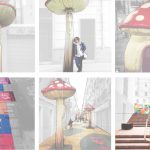
The analysis of the urban public space from a perceptual dimension has traditionally been used to recognise its uniqueness and to identify which of its physical qualities promote activity and livability. This approach is particularly relevant in transformed urban settings. The perceived image of a space allows an assessment of the extent to which the social dynamics have been modified since its regeneration. Under this premise, the aim of this paper is to study urban life after the transformation of Calle San Francisco, in Alicante, Spain, into a recreational and thematic space characterized by giant mushrooms. In order to accomplish this objective, three indicators of public life were evaluated: the building’s economic activities before and after the intervention; the social use of the new space and the resulting public image —or perceived image—. A hybrid methodology is used which combines data collected from field work with data retrieved from technological sources —the social network Instagram and the web service Google Street View—. The overall results demonstrated that the use of both offline and online data enables confirmation, complementation and questioning of the partial results obtained from each method. Thus, it was evidenced that not only has the physical identity of Calle San Francisco been substantially modified, but also, its collective image in relation to the rest of the city. All in all, this research proves the relevance of understanding the complexity of today’s physical and virtual social relations resulting from the transformation of an urban setting. +info
[February 8th / 10:30am EP/S-03D] La forma de hacer ciudad es un proceso en crisis. Diferentes factores, desde cambios sociales, crisis de la política o transformación tecnológica, están contribuyendo a la materialización de un conflicto entre las formas institucionales de gobernar y dar forma a las ciudades y las expectativas de la ciudadanía sobre el papel que quiere tener en la ciudad que vive. Son muchos los movimientos sociales, las disciplinas académicas, los proyectos o las teorías que están contribuyendo en los últimos tiempos a la formación de un nuevo enfoque sobre cómo hacer ciudad que vaya más allá de las instituciones públicas y del urbanismo como instancias centrales o únicas de hacer ciudad. Hacer ciudad ya no es únicamente un asunto de planificadores públicos o de urbanistas en sentido estricto. Las metodologías, conocimientos y teorías que diseñan y construyen la ciudad y sus proyectos en el día a día han desbordado el campo de acción de las ciencias urbanas tradicionales. Con estas premisas, la sesión quiere revisar más concretamente el impacto de las ciudades inteligentes como modelo urbano y su significado en las nuevas prácticas del urbanismo, la gestión de la ciudad, las dinámicas de participación ciudadana, etc. +info
[October 2016 – April 2017] The lecture series under the title CROSS-CUTTING URBANISM 2.0 brings together talks from different experts in the discipline and practice of urban issues. +info
[23rd May 2016 – 1st September 2016] This online course presents a series of topics of current interest in the field of urban studies. Six experts share their specialized knowledge and experience by introducing different concepts and perspectives on the multifaceted discipline of urbanism.
Second edition [15th March 2017 – 14th April 2017] +info. Pre-matricúlate.
[11th February 2016 – OPENING!] This exhibition is an initiative of a group of lecturers of the Urban Design and Regional Planning Unit of the University of Alicante. It graphically displays a research and teaching trajectory that focuses on the study of various urban and territorial phenomena using open and social media data at cities in the Mediterranean European Arc.
[27th January 2016 – 11.00 am – Room EP-S/07D]
[November 2015 – March 2016] The lecture series under the title CROSS-CUTTING URBANISM brings together talks from different experts in the discipline and practice of urban issues. +info
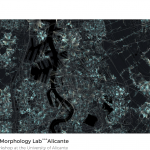 > [workshop] URBAN METAMORPHOLOGY LAB ALICANTE
> [workshop] URBAN METAMORPHOLOGY LAB ALICANTE 
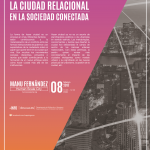 > [lecure] MANU FERNANDEZ: LA CIUDAD RELACIONAL EN LA SOCIEDAD CONECTADA
> [lecure] MANU FERNANDEZ: LA CIUDAD RELACIONAL EN LA SOCIEDAD CONECTADA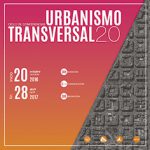 > [lecture series] CROSS-CUTTING URBANISM 2.0
> [lecture series] CROSS-CUTTING URBANISM 2.0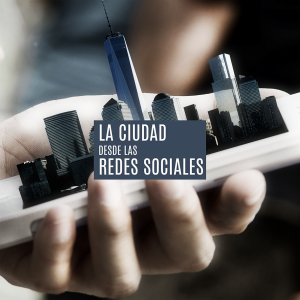 > [exhibition] CITIES THROUGH SOCIAL NETWORKS
> [exhibition] CITIES THROUGH SOCIAL NETWORKS 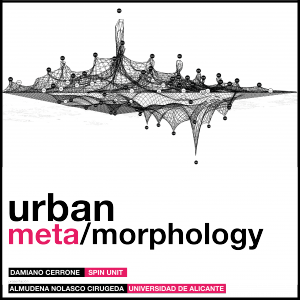 > [conference] URBAN META/MORPHOLOGY – Damiano Cerrone
> [conference] URBAN META/MORPHOLOGY – Damiano Cerrone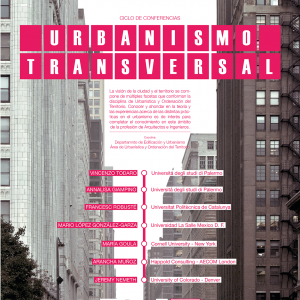 > [course] CROSS-CUTTING URBANISM
> [course] CROSS-CUTTING URBANISM